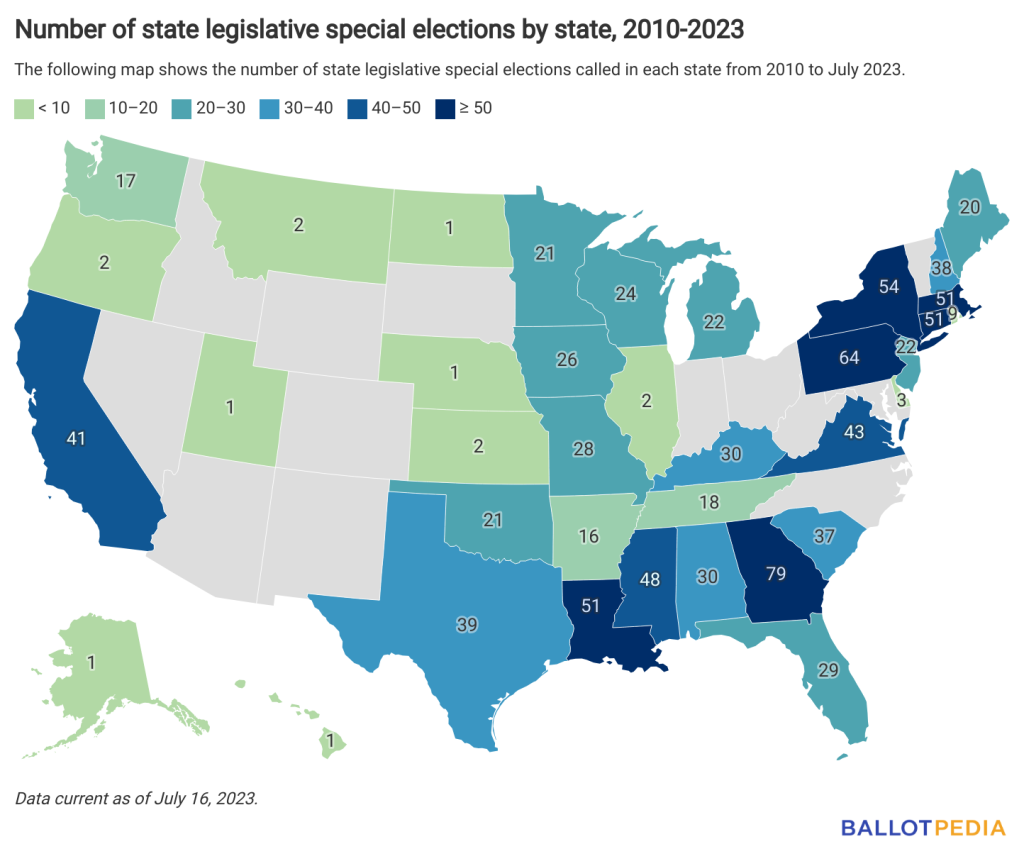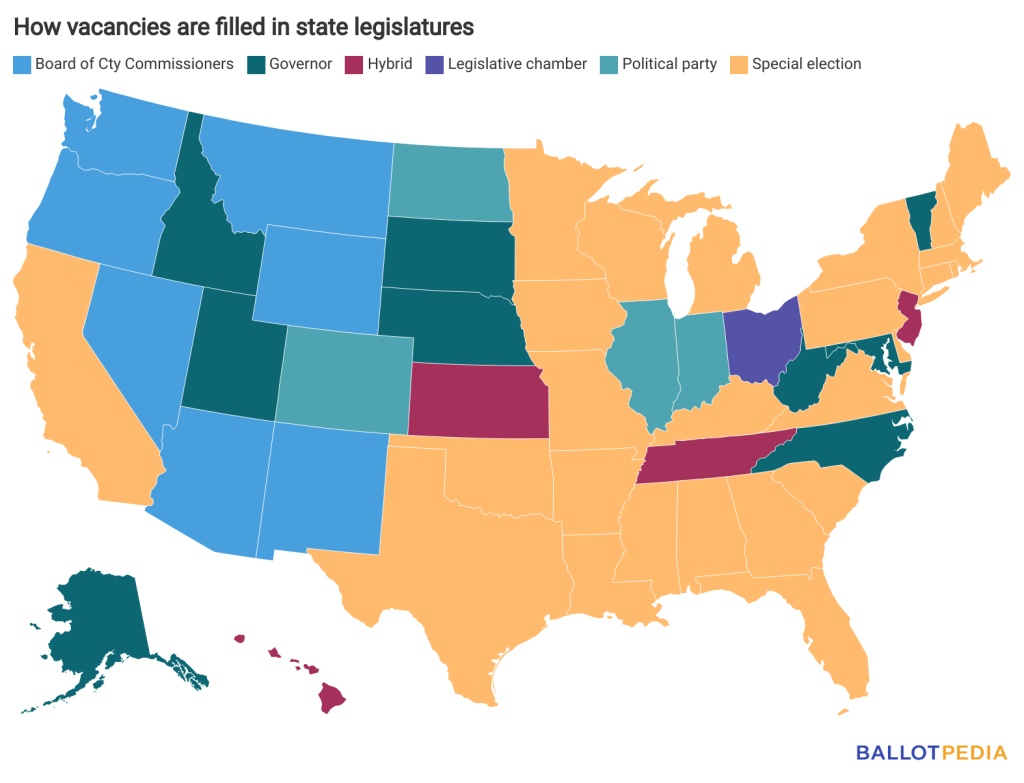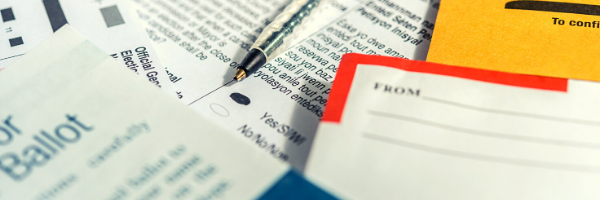Forty-three special elections for state legislative seats have been called in 16 states so far in 2023. Georgia and Pennsylvania have scheduled the most state legislative special elections this year, with six each, followed by Tennessee with five.
The special elections called so far this year are being held for the following reasons:
- Nine due to appointment, election, or the seeking of election to another position
- 23 due to resignation
- Nine due to the death of the incumbent
- Two due to removal from office
Georgia and Pennsylvania have also called the most special elections since 2010, when Ballotpedia started tracking special election data. Between 2010 and July 16 of this year, 945 special elections have been called in 37 states. Georgia has called 79 elections in that time and Pennsylvania has called 64.
Four other states have called more than 50 special elections since 2010: New York has called 54, while Louisiana, Massachusetts, and Connecticut have all called 51 special elections.
Thirteen states have called no special elections since 2010.

Georgia and Pennsylvania are two of 25 states that require a special election to fill state legislative vacancies.
Twenty-one other states, including the 13 that have not called special elections since 2010, fill vacancies through appointments instead:
- In four states (Colorado, Illinois, Indiana, and North Dakota), the political party of the incumbent that last held the seat is responsible for selecting a replacement to fill the vacancy;
- In seven states (Arizona, Montana, Nevada, New Mexico, Oregon, Washington, and Wyoming), the board of county commissioners selects a replacement;
- In nine states (Alaska, Idaho, Maryland, Nebraska, North Carolina, South Dakota, Utah, Vermont, and West Virginia), the governor is responsible for filling the vacancy;
- In Ohio, the legislative chamber where the vacancy happened is responsible for filling the vacancy. Members of the party that last held the seat hold an election in which a simple majority vote is needed in order to approve a replacement.
Depending on the position being filled, replacements in some states that fill vacancies through appointments may serve the remainder of the unfilled term or until the next general election is held. When it’s the latter, a special election concurrent with the general election is usually called to fill the seat.
Additionally, four states—Hawaii, Kansas, New Jersey, and Tennessee—fill vacancies through hybrid systems that use both appointments and special elections.

For more information on how each state fills state legislative vacancies, click here. To read more about special elections for state legislative seats taking place in 2023, click here.
Additional reading:



